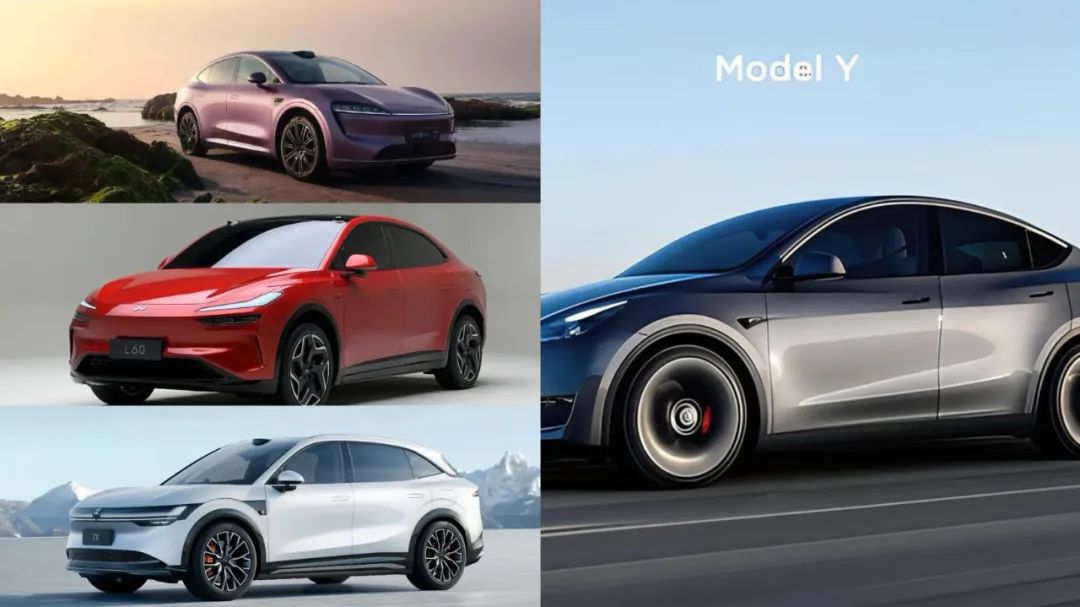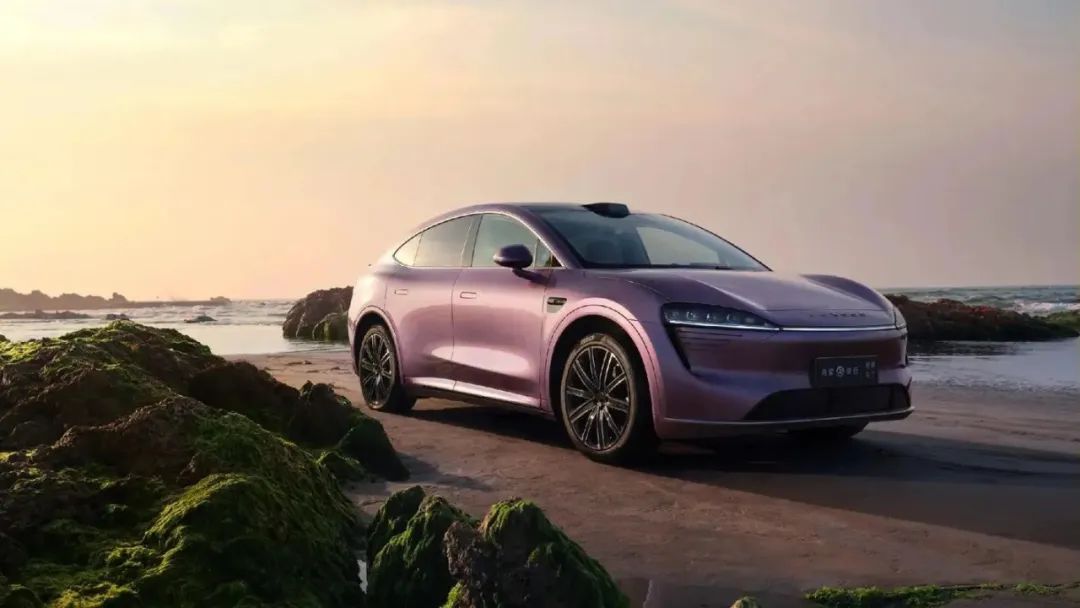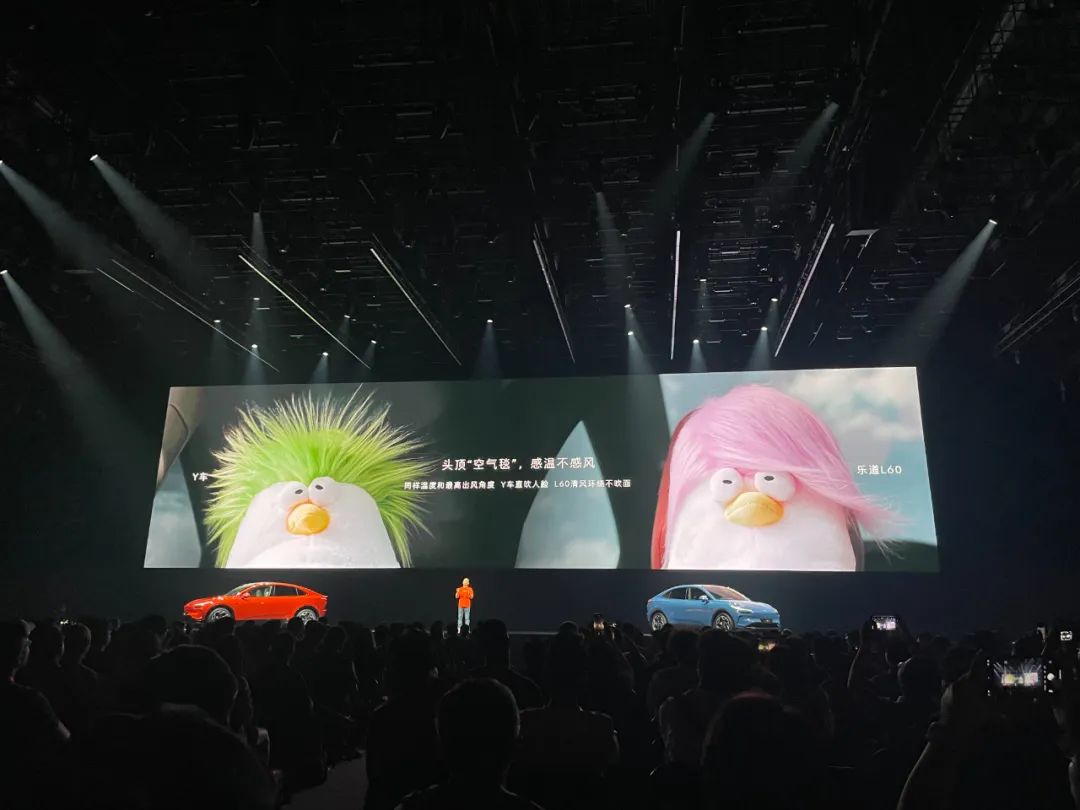Hunting for the global sales champion Model Y!
![]() 09/26 2024
09/26 2024
![]() 410
410
From September 19th to September 24th, within just one week, the Ledo L60, Zeekr 7X, and Zhide R7 were successively launched.
The goal of these three all-electric SUVs' launches is to compete for market share against Tesla's Model Y. Observing Model Y's weekly sales exceeding 10,000 units, with its main model being the rear-wheel-drive version powered by a lithium iron phosphate battery with a range of only around 430 kilometers (CLTC: 554km), competitors are both perplexed and envious. They have successively launched their own all-electric SUVs, attempting to challenge Model Y, the global sales champion in 2023 without any qualifiers.
However, Elon Musk has stated that none of them pose a threat. Xpeng G6, Zhide LS6, and others have all fallen short. Nevertheless, automakers continue to introduce models to compete with Model Y, believing they have grasped the essence of this model released as early as 2019. This time, Ledo, Zeekr, and Zhide all hope to leverage their strengths to capture a share of Model Y's market.

Ledo L60 utilizes battery swapping, Zeekr 7X boasts luxury configurations, and Zhide R7 incorporates Huawei's intelligent driving technology. Each leverages their unique strengths and adopts different strategies, aiming to disrupt Model Y's dominance in the all-electric mid-size SUV segment. Who will succeed?
Three against one
Within just one week, the successive launches of Ledo L60, Zeekr 7X, and Zhide R7 were all aimed at Tesla's Model Y in the all-electric mid-size SUV market, akin to a battle of "three heroes against one mighty warrior."
On September 19th, Ledo L60 debuted first, introducing two models priced at 206,900 and 235,900 yuan, respectively. The BAAS program starts at 149,900 yuan, with monthly battery rental fees of 599 and 899 yuan, respectively.
On September 20th, Zeekr 7X followed, unveiling three models priced at 229,900, 249,900, and 269,900 yuan, respectively, all equipped with standard lidar and intelligent driving features.
On September 24th, Zhide R7 made its grand entrance, launching four models priced at 259,800, 299,800, 319,800, and 339,800 yuan, respectively. All models come standard with CDC continuously variable damping shock absorbers and air suspension.
Meanwhile, Tesla's Model Y currently offers three models priced at 249,900, 290,900, and 354,900 yuan, with FSD requiring an additional 64,000 yuan.

In terms of price range, Zhide R7 is the closest to Model Y, while Ledo L60 is the farthest. After all, NIO's ES6 is the closest to Model Y among its lineup, and there is still a price gap to maintain. If considering the BAAS program, the price range widens even further. Following the principle that more models often mean more strategies, Zhide R7 offers the most models, while Ledo L60 offers the fewest. Zhide R7's diverse lineup reflects its ambitions, but it remains to be seen if it can achieve its goals. Ledo L60 currently prioritizes BAAS models, with some readers reporting that test drives are limited to customers who have placed orders. Zeekr 7X aims to alleviate concerns about potential issues similar to those experienced with the Zeekr 001.
Judging from the post-launch feedback, these three models have received positive market responses, as they exhibit strong competitiveness in terms of product capabilities and pricing. However, future success will ultimately depend on their delivery performance. With increased production capacity, these models are likely to achieve impressive monthly sales figures. But can they truly challenge Model Y's over 40,000 monthly sales?
Model Y, despite refusing to adopt battery swapping, remains formidable
Currently, Tesla's flagship models are the Model 3 and Model Y. After enduring a difficult period with monthly sales dipping to just a few thousand units post-refresh, the Model 3 rebounded in August, approaching its post-refresh monthly sales high of over 18,000 units. The Model Y has been nothing short of remarkable.

This model, first introduced in 2019 and delivered in China starting in 2021, has undergone numerous price adjustments, with the rear-wheel-drive version's price dropping to 249,900 yuan since early 2023. Coupled with interest-free financing options, this model has regained its cost-effectiveness. Despite ongoing calls for a refresh, sales continue to climb. Perhaps by maintaining stable pricing and a slower pace of model updates, Tesla has positioned itself well in today's fiercely competitive market, where rapid iteration and price wars are the norm. Tesla models retain their value better and avoid the pitfalls of frequent updates, such as the Zeekr 001's rapid succession of three generations in just a few months.

While the arrivals of Ledo L60, Zeekr 7X, and Zhide R7 may exert some pressure on Model Y, their ability to impact Model Y's sales will depend on their collective strength. Nevertheless, do Model Y buyers truly prioritize range? Probably not, considering the rear-wheel-drive version's range of around 430 kilometers is the mainstay. Do they care deeply about features? Again, likely not, given Model Y's reputation for being a basic model.
Considering Model Y's spaciousness, pricing, brand reputation, and intelligent driving capabilities, it remains an appealing and reliable choice for many first-time electric car buyers, particularly due to Tesla's strong brand influence. After all, Tesla led the wave of electric vehicle adoption. What monthly sales figures do you predict for Ledo L60, Zeekr 7X, and Zhide R7? Will Model Y's monthly sales decline as a result? Or will it take the arrival of Xiaomi's SUV to truly challenge Model Y and reignite the price war?








